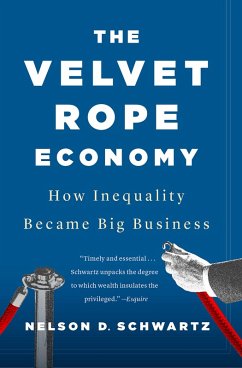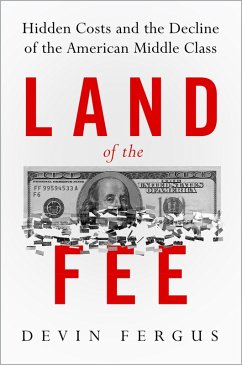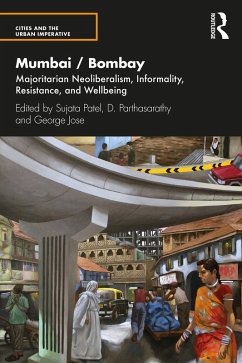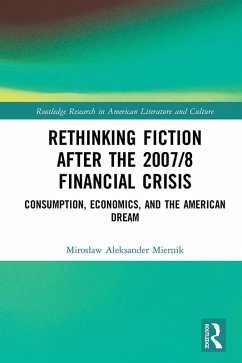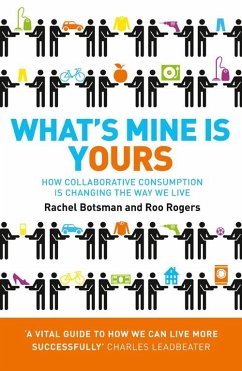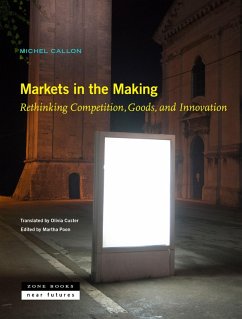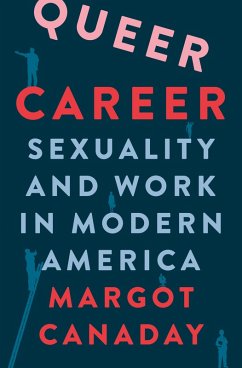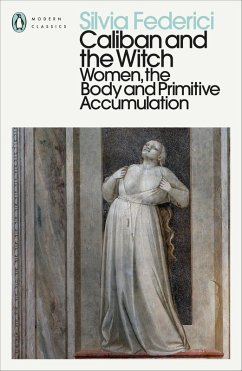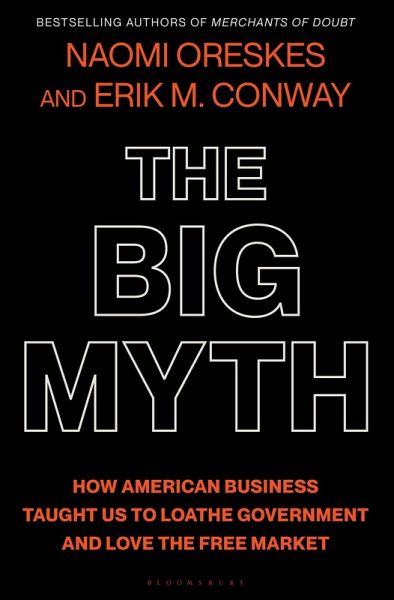
The Big Myth (eBook, ePUB)
How American Business Taught Us to Loathe Government and Love the Free Market

PAYBACK Punkte
6 °P sammeln!
"[A] scorching indictment of free market fundamentalism . . . and how we can change, before it's too late."-EsquireThe bestselling authors of Merchants of Doubt offer a profound, startling history of one of America's most tenacious-and destructive-false ideas: the myth of the "free market." In their landmark book Merchants of Doubt, Naomi Oreskes and Erik M. Conway revealed the origins of climate change denial. Now, they unfold the truth about another disastrous dogma: the "magic of the marketplace."In the early 20th century, business elites, trade associations, wealthy powerbrokers, and media...
"[A] scorching indictment of free market fundamentalism . . . and how we can change, before it's too late."-Esquire
The bestselling authors of Merchants of Doubt offer a profound, startling history of one of America's most tenacious-and destructive-false ideas: the myth of the "free market."
In their landmark book Merchants of Doubt, Naomi Oreskes and Erik M. Conway revealed the origins of climate change denial. Now, they unfold the truth about another disastrous dogma: the "magic of the marketplace."
In the early 20th century, business elites, trade associations, wealthy powerbrokers, and media allies set out to build a new American orthodoxy: down with "big government" and up with unfettered markets. With trenchant archival evidence, Oreskes and Conway document campaigns to rewrite textbooks, combat unions, and defend child labor. They detail the ploys that turned hardline economists Friedrich von Hayek and Milton Friedman into household names; recount the libertarian roots of the Little House on the Prairie books; and tune into the General Electric-sponsored TV show that beamed free-market doctrine to millions and launched Ronald Reagan's political career.
By the 1970s, this propaganda was succeeding. Free market ideology would define the next half-century across Republican and Democratic administrations, giving us a housing crisis, the opioid scourge, climate destruction, and a baleful response to the Covid-19 pandemic. Only by understanding this history can we imagine a future where markets will serve, not stifle, democracy.
The bestselling authors of Merchants of Doubt offer a profound, startling history of one of America's most tenacious-and destructive-false ideas: the myth of the "free market."
In their landmark book Merchants of Doubt, Naomi Oreskes and Erik M. Conway revealed the origins of climate change denial. Now, they unfold the truth about another disastrous dogma: the "magic of the marketplace."
In the early 20th century, business elites, trade associations, wealthy powerbrokers, and media allies set out to build a new American orthodoxy: down with "big government" and up with unfettered markets. With trenchant archival evidence, Oreskes and Conway document campaigns to rewrite textbooks, combat unions, and defend child labor. They detail the ploys that turned hardline economists Friedrich von Hayek and Milton Friedman into household names; recount the libertarian roots of the Little House on the Prairie books; and tune into the General Electric-sponsored TV show that beamed free-market doctrine to millions and launched Ronald Reagan's political career.
By the 1970s, this propaganda was succeeding. Free market ideology would define the next half-century across Republican and Democratic administrations, giving us a housing crisis, the opioid scourge, climate destruction, and a baleful response to the Covid-19 pandemic. Only by understanding this history can we imagine a future where markets will serve, not stifle, democracy.



